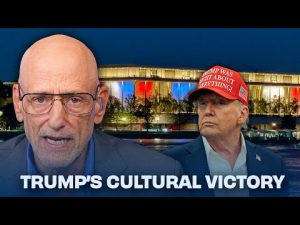**FBI Under Fire: The Secret Files Scandal and Allegations of Political Bias**
In a dramatic turn of events, the FBI finds itself in the hot seat as allegations of misconduct and political favoritism swirl around the agency. Senator Chuck Grassley has raised concerns about secret files that are reportedly being hidden from Congress, leading whistleblowers to suggest that top agents were tampering with evidence. With big names like Hillary Clinton and Joe Biden being mentioned, the question on everyone’s mind is: Is the FBI protecting political insiders rather than serving justice?
Grassley has been vocal about the need for accountability within the FBI, citing that these prohibited access files might hinder oversight efforts. It appears that the agency has been using clever tactics—like “parking” sensitive documents in hard-to-find places—to evade responsibility. This is no small issue; Grassley suggests that the ramifications could be quite severe, potentially undermining the constitutional role of the FBI and the federal government as a whole. The growing anxiety among conservatives is palpable as they wonder how deeply this culture of secrecy runs within the FBI.
Critics argue that this isn’t just an isolated incident but rather a systemic problem within the FBI that extends well beyond the mishandling of a few documents. The atmosphere in the agency, they claim, resembles a fortress that is unwilling to face outside scrutiny. Accountability seems to be a foreign concept; many in the bureau would prefer to operate without prying eyes, raising serious questions about the integrity of their operations. Grassley is praised by many for shining a light on these issues, especially during a time when such oversight seems increasingly rare.
It’s not just a matter of shuffling papers and hiding files, however. The discussion is now turning to structural reforms that could reshape the FBI. Reformers suggest that a complete overhaul of the agency is necessary to restore its credibility, something that may sound like wishful thinking to some. After all, many worry that the deep-rooted culture within the agency allows for a lack of accountability that could be nearly impossible to correct. For Grassley and others in Congress, it’s about starting a conversation and rallying support for meaningful changes.
Looking back at instances like the investigation surrounding the Anthony Weiner laptop and the numerous questions left unanswered regarding Hillary Clinton, many are left scratching their heads. Critics point out that the FBI has a troubling pattern of avoiding serious inquiries into politically charged cases, only to focus efforts where they see fit. The stark contrast between how the agency treated Trump during his presidency compared to Clinton is a source of frustration and fear for those who value impartial justice. The sentiment lingers—if the FBI has become so politically entangled that it hinders justice, what does that say about the future of law enforcement in America?
In summary, the FBI is currently facing intense scrutiny as allegations of political bias and evidence mishandling take center stage. With figures like Chuck Grassley demanding realistic oversight and potential reform, the hope for an accountable and unbiased FBI happens to be a priority for many conservatives. The call for transparency and reform continues to resonate, and only time will tell if the FBI is willing to shake off its past behaviors or if it will remain an agency defined by secrecy and political machinations. Whatever the outcome, one thing is sure: the public will be watching closely, and they won’t soon forget the revelations that have come to light.







